-
Have You Maximized Your 2015 Dental Benefits?
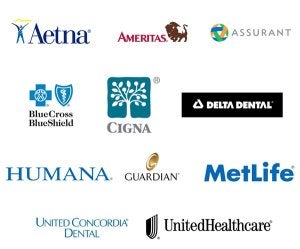
Have you maximized your 2015 Dental Benefits?
This is a friendly reminder that dental benefits do not roll over to the next year. If you have pending dental work, please make an appointment before the busy holiday season so we can help you maximize your dental insurance and improve and maintain a healthy mouth for you and your family!
Call us today at (224) 698-1472!
-
Treatment Options for Gum Disease
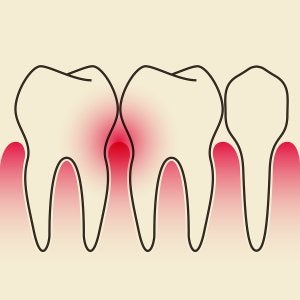 Gum disease, also known as periodontal disease , is a serious oral health issue that affects many people. If your dentist finds signs of gum disease during an exam, it is important to take all of the steps needed to return your gums to a healthy state. There are several different options for treating gum disease. Certain types of gum disease can be treated with non-surgical procedures, such as rinses or scaling. In addition, a procedure called root planing can be used to deeply clean the base of the gums. For more severe gum disease, it may be necessary to perform periodontal surgery. A dentist at an office offering family dental care near Schaumburg will be able to walk you through all of the treatment options that are available to you. By treating your gum disease with the best available procedures, you can ensure that you have a healthy smile for life.
Gum disease, also known as periodontal disease , is a serious oral health issue that affects many people. If your dentist finds signs of gum disease during an exam, it is important to take all of the steps needed to return your gums to a healthy state. There are several different options for treating gum disease. Certain types of gum disease can be treated with non-surgical procedures, such as rinses or scaling. In addition, a procedure called root planing can be used to deeply clean the base of the gums. For more severe gum disease, it may be necessary to perform periodontal surgery. A dentist at an office offering family dental care near Schaumburg will be able to walk you through all of the treatment options that are available to you. By treating your gum disease with the best available procedures, you can ensure that you have a healthy smile for life. -
A Look at Teeth Veneers
If your dentist has recommended teeth veneers for you, you may be wondering about the specifics of this type of procedure. Like a dental crown, a veneer is used to replace a decayed or damaged tooth. This porcelain-based material is implanted on the facial area of the tooth. A dentist offering affordable dentures near Schaumburg can also provide you with more information about the benefits of veneers. With a tooth veneer procedure, you can improve your smile instantly. If you would like more information about the process of implanting veneers, be sure to check out this informative video from expertvillage.
-
Common Questions About Orthodontic Care
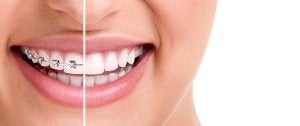 Whether you are a parent seeking braces for a child, or are an adult seeking an improved smile, orthodontics are a safe and effective way to improve crooked or overcrowded teeth. Orthodontics can also alleviate a range of other issues, such as tooth pain or jaw issues. A clinic offering family dental care in Schaumburg will be able to provide you with more information about all of your orthodontic options, including braces and dental implants. By choosing to work with a highly rated dentist in your area, you will be sure to have a great orthodontic experience. Read on for a look at answers to common questions about orthodontic care.
Whether you are a parent seeking braces for a child, or are an adult seeking an improved smile, orthodontics are a safe and effective way to improve crooked or overcrowded teeth. Orthodontics can also alleviate a range of other issues, such as tooth pain or jaw issues. A clinic offering family dental care in Schaumburg will be able to provide you with more information about all of your orthodontic options, including braces and dental implants. By choosing to work with a highly rated dentist in your area, you will be sure to have a great orthodontic experience. Read on for a look at answers to common questions about orthodontic care. Why Is Oral Hygiene Important When I Have Braces?
Patients who receive braces are instructed to perform careful oral hygiene procedures on a daily basis. Proper oral hygiene is especially important if you have traditional wire braces. If plaque is left to sit on the wires of the braces, it can cause cavities and tooth decay. By brushing your braces, you will keep your teeth healthy during your orthodontic care.
How Can I Clean My Braces?
Many patients wonder about the specifics of taking care of their teeth when they have braces . Typically, dentists recommend that patients brush their teeth after meals, in the morning, and directly before bed. You can also use special floss threaders to make sure that all food particles are removed from your teeth and braces. In the event that you find yourself without a toothbrush, you can also rinse your mouth with fresh water.
What Do Braces Feel Like?
If you are preparing for braces, you may be wondering what the braces will feel like once they have been placed in your mouth. During each visit, your dentist will gently tighten the braces wires in order to gradually move your teeth into position. If you experience discomfort after you have your braces tightened, you can alleviate the pain using an over the counter medication, such as ibuprofen.
-
A Patient’s Guide to Cavities
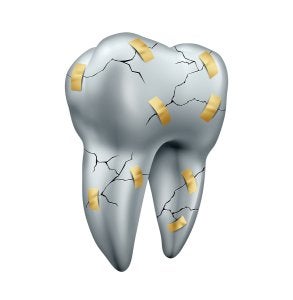 Having a healthy smile is an essential part of both your physical health and self confidence. By making regular visits to the dentist , you will ensure that your teeth are healthy and in good shape. In the event that you experience the signs of a cavity, you should be sure to visit an office offering family dental near Schaumburg. Your dentist can help alleviate your tooth pain, and can also provide additional support to prevent gum disease and other oral health issues. If you are preparing for a trip to the dentist, here is a guide to the basics that every patient should know about cavities.
Having a healthy smile is an essential part of both your physical health and self confidence. By making regular visits to the dentist , you will ensure that your teeth are healthy and in good shape. In the event that you experience the signs of a cavity, you should be sure to visit an office offering family dental near Schaumburg. Your dentist can help alleviate your tooth pain, and can also provide additional support to prevent gum disease and other oral health issues. If you are preparing for a trip to the dentist, here is a guide to the basics that every patient should know about cavities. Signs and Symptoms
There are several signs and symptoms that may indicate that you have a cavity. The symptoms of a cavity can vary depending on the severity of the issue, as well as the location of the cavity in the mouth. Some of the most common signs of a cavity include pain in one or more teeth, tooth sensitivity, or pain during eating and drinking.
Causes
Cavities form when a tooth begins to decay. The primary cause of cavity is due to a substance called plaque. When plaque forms around your teeth, the bacteria that are present in plaque will begin to eat away at the enamel of your teeth. Over time, this process can create cavities, which are holes. Plaque can build up due to poor oral hygiene practices, or can be a natural occurrence due to the structure of your teeth.
Treatment
There are several techniques that dentists can use to treat cavities. If a cavity is very minor, it may be able to remove the damage using a fluoride rinse. More severe cavities may require that your dentist perform a filling procedure. During the filling, your dentist will remove the damaged area of your tooth and fill the area with a new material. Very serious cavities can also be treated with other procedures, such as crowns or root canals.
-
What Are the Symptoms of a Dental Abscess?
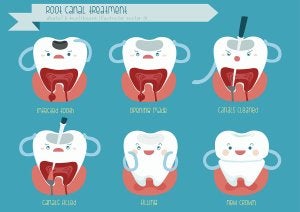 If you are experiencing severe tooth pain, swollen gums, and a fever, you may have an abscessed tooth. A dental abscess is a severe infection that can result from poor oral care, trauma, or gum disease. If you think you have an abscessed tooth, it is important to see a dentist, as you might need to undergo a root canal in Schaumburg .
If you are experiencing severe tooth pain, swollen gums, and a fever, you may have an abscessed tooth. A dental abscess is a severe infection that can result from poor oral care, trauma, or gum disease. If you think you have an abscessed tooth, it is important to see a dentist, as you might need to undergo a root canal in Schaumburg . A dental abscess is an infection inside the tooth that has spread to the root. This can develop when tooth decay becomes so severe that it reaches the inner pulp. A throbbing and continuous toothache is the most common sign of an abscess. The pain may subside if the pulp dies from the infection, but this does not mean that the infection has healed or that the tooth does not need treatment from a dentist. More serious symptoms of an abscess include fever, foul breath, and a bad taste. You may also experience swelling of the jaw. In some cases, you may see an open sore on the side of the gum near the infected tooth.
-
Answering FAQs about Fastbraces™
 For most dental patients, having straight teeth requires getting braces. What if you could have the results of braces in less time with less pain? If you are looking into braces in Schaumburg, talk to your orthodontist about Fastbraces ™. Read on for answers to the most common questions about Fastbraces™.
For most dental patients, having straight teeth requires getting braces. What if you could have the results of braces in less time with less pain? If you are looking into braces in Schaumburg, talk to your orthodontist about Fastbraces ™. Read on for answers to the most common questions about Fastbraces™. Why Are Fastbraces™ a Good Alternative to Conventional Braces?
Traditional braces typically move teeth in a two-step process that can cause unnecessary discomfort and additional wear time. Fastbraces™ combines these two steps into a process that results in much less pain and quicker completion times. Fastbraces™ are also available to a wider variety of patients than traditional braces.
How Do Fastbraces™ Work?
Fastbraces™ work by replacing traditional square brackets with triangular ones. This allows for more space between braces and, thus, more leverage to redirect the root of each tooth. When the root of a tooth is properly aligned, the rest of the tooth will follow. Ultimately, this added space allows for the quicker realignment of teeth and a decreased wear-time for the patient. This means that patients can enjoy a beautiful smile and decreased risk of periodontal disease as soon as possible.
Are There Additional or Different Risks Involved?
There are no extra risks involved with the use of Fastbraces™. Wearing braces can be quite trying, and sometimes uncomfortable for patients. However, Fastbraces™ offer patients an easier and more enjoyable experience than traditional braces.
What Are My Fastbraces™ Options?
Fastbraces™ come in three different options, and most care providers offer all three types of Fastbraces™ systems. Fastbraces™ Metal has a more traditional appearance while still offering the quality of Fastbraces™ technology. Fastbraces™ Clear provides a more attractive bracket system with tooth-colored wires. Fastbraces™ Retainers are available for patients that need minimal dental work and also work as follow-up treatments for both of the other systems. Thanks to the significant advancements of Fastbraces™ technology, patients may only be required to wear Fastbraces™ Retainers for 15 to 20 minutes a day, per their dentist’s instructions.
-
Great Dental Heights Reviews
Welcome to Dental Heights, your Schaumburg and Glendale Heights dentist. From the time you first call our office, you will experience exceptional service, responsiveness, and care. Look at our many great reviews from our satisfied patients on our Google Plus page! -
Tips for Recovering from Wisdom Teeth Removal
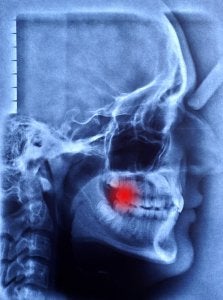 Many people find that they eventually need to have their wisdom teeth removed. Wisdom tooth extraction is a minor surgery, but it can still be intensive. If you have undergone wisdom teeth removal in Schaumburg , you may want to consider taking time off to heal. The following tips will help to ensure a speedy and healthy recovery after your wisdom teeth removal.
Many people find that they eventually need to have their wisdom teeth removed. Wisdom tooth extraction is a minor surgery, but it can still be intensive. If you have undergone wisdom teeth removal in Schaumburg , you may want to consider taking time off to heal. The following tips will help to ensure a speedy and healthy recovery after your wisdom teeth removal. Take Extra Care and Be Gentle
The holes left by the wisdom teeth will be sore, so you will want to consume only liquids and soft foods, such as broth and Jell-O. As your healing progresses, you will be able to eat regular foods with caution. It is important to avoid agitating the healing areas with your tongue, fingers, or hard foods. You may experience swelling in the cheeks and jaw area, which can be alleviated with a cold compress. You can begin to apply low heat one or two days after surgery. Be sure to consume plenty of water and other fluids to stay hydrated.
Keep Your Mouth Clean
Your dentist may give you gauze pads after surgery to help soak up any blood. It is a good idea to periodically change the gauze to keep the area clean. After 24 hours, gently rinse your mouth with warm salt water a few times each day to relieve pain and swelling. You can also resume gently brushing your teeth. For a few days following surgery, it is important to rinse food out of the sockets with warm water after meals.
Take Some Precautions
After having your wisdom teeth removed, it is very important that you do not smoke for at least 72 hours. Smoking can bring bacteria and other contaminants to the wound. Avoid sucking on straws or ice, as this can loosen the protective blood clots from the sockets, delay healing, and possibly cause a condition called dry socket. Physical activity can increase swelling and pain, so it is advised to rest for at least 24 hours following your procedure. If you notice any complications, such as persistent pain or bleeding, be sure to contact your dentist.
-
A Look at the Causes of Tooth Pain
Tooth pain can be quite distracting and even disruptive during your daily life. It is important that you visit a dentist that offers family dental care in Schaumburg if you notice any persistent pain or discomfort, as it can be a sign of a more significant problem. Your dentist will help you develop oral care practices to prevent future tooth pain. Watch this video to see what might be the source of your tooth pain.
Grinding your teeth during sleep or when stressed can cause pain. The grinding wears down enamel and makes teeth sensitive. It is important to brush and floss daily to clean away plaque and prevent tooth decay; if decay reaches the nerve, it can become very painful. Most tooth pain can be reasonably prevented with a regular oral care routine and dental checkups.
RECENT POSTS
categories
Archives
2025
2017
2016
2015
- October (1)
- September (2)
- August (4)
- July (4)
- June (5)
- May (4)
- April (4)
- March (5)
- February (5)
- January (5)
